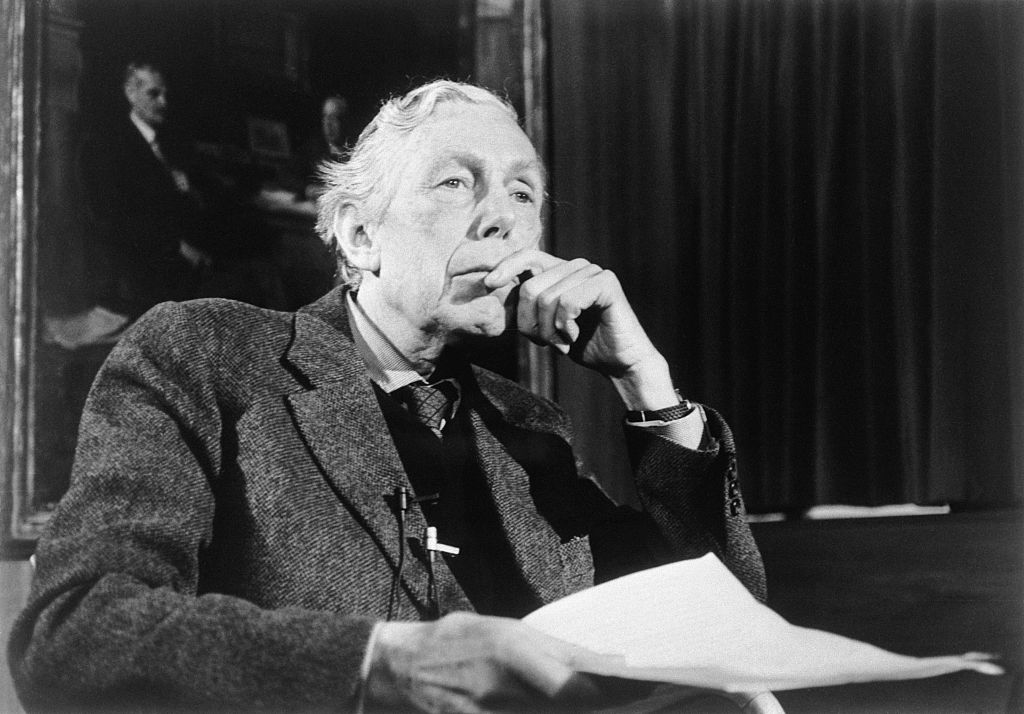There are many theories circulating at the moment as to why the political environment seems to get ever more polarised. Some theories are well known: it is racism, misogyny, transphobia, Islamophobia, or climate denial by an aggressive far-Right movement that infringes on an otherwise harmonious world. You might think this is hyperbole, but according to a recent poll, 51 per cent of the Greens in Germany see no reason to be worried about the country’s future, compared to zero per cent of Alternative for Germany (AfD) voters.
What we are witnessing is not just a disagreement on specific policy issues, but on the very way in which the world around us is perceived. One is hard-pressed to make a convincing case that Germany is doing well at the moment, given its mounting problems in every area from infrastructure to industries to the handling of migration. Yet you get newspaper headlines like this: “Not everything about de-industrialisation is bad,” claiming that all the bad things happening are actually good.
On the political Left, there is a strong tendency to view economic decline as a net positive, which is why the ideology of de-growth is so popular on that side of the political divide, as is the idea that in a perfect world we would reverse the industrial revolution and force a reduction in the global population. None of this is a conspiracy theory, as the European Union is publicly funding de-growth projects and the Malthusian – and reliably wrong on almost every issue – biologist Paul Ehrlich remains a desired guest in the mainstream media.
Ehrlich is best known for his reputation as a renowned prophet of doom. His seminal work, The Population Bomb, published in 1968, delivered a series of famously inaccurate predictions. Among these were claims that by the 1980s, hundreds of millions would die from starvation, a scenario that did not come to pass. Ehrlich also made the assertion that England would cease to exist by the year 2000. He suggested that even with modern fertilisers, humanity would struggle to produce enough food to sustain itself, and he predicted that thermonuclear war was imminent.
Despite his high profile and the dramatic nature of his warnings, many of which have since been proven wrong, his popularity appears to be unblemished. Ehrlich, despite being wrong on so many issues, remains popular because of the remedies he described for the (never materialized) problems humanity would be facing: massive state control over everything from forced population control to huge redistribution programs. His writing provided the perfect justification for a quasi-totalitarian power grab, and the fact that his theories turned out to be wrong is just an inconvenience to be ignored.
Ehrlich, like so many of the contemporary environmentalists, pursued an anti-human agenda, which dovetails nicely with the idea that the only way to save the planet is to get rid of as many humans as possible. This idea, in turn, is driven by the perception that human beings in general (and the West in particular) must atone for the supposed sins of the past, and economic and civilisational suicide are precisely the means to achieve this goal. Therefore, it is no surprise that more than 50 per cent of German Greens are jubilant about their country’s direction. After all, it supports their most ambitious ideological program.
I do not think that this worldview is limited to Germany, and it increasingly seems as if the political Left and the political Right are living on alternative planets. Some, like the American author Batya Ungar-Sargon (whom we also interviewed for our Brussels Signal podcast) argues that the true divide is a class divide, and that the culture wars are just a distraction from an elite that attempts to shield its economic privileges.
However, the national conservative camp around the political philosopher Yoram Hazony sees the main reason of polarisation in the rise of neo-Marxism, a term they use synonymous with wokeness.
While I believe that both viewpoints have a lot of merit to them, they still miss the actual dividing line that separates contemporary political movements in the West. Even the distinction between liberal and conservative is only capturing parts of the picture. The true division can be found in Oikophobia and Oikophilia – or, to put it into plain English – between those who hate their own country and culture and those who love it (we had a great conversation on this topic with philosopher and classical scholar Benedict Beckeld).
A significant part of the political Left has signed up for the former, while most of the political Right still belongs to the latter. Contrary to claims by the Left and the legacy media, so-called conservatives care much less about the things they are supposedly obsessed with. The claim about the racist Right is hard to uphold when you think about the probably most popular contemporary conservative philosopher: Thomas Sowell. Kemi Badenoch, a female black politician is a Tory favourite, and even fringe nutjobs like Candace Owens are not hampered by the colour of their skin.
Ah, but they are all anti-Semites, aren’t they? Not if you ask Ben Shapiro, who is by some measure the world’s most successful Right-wing commentator and – in contrast to Bernie Sanders and George Soros – is an actual practicing Jew.
Okay, but they do hate the gays, that’s for certain. Is it though? The gay commentators Dave Rubin and Douglas Murray are extremely popular on the Right, the gay politician and first Dutch Right-wing populist Pim Fortuyn was openly gay, and Germany’s “far” Right party, the Alternative for Germany (AfD) is led by Alice Weidel, a Lesbian. Sure, but when it comes to the transgender population, that is where they all draw the line. Nope, not at all: just look up Blair White.
So what is it that the Right actually cares about, and why does it often appear as if they have a deep-seated aversion against the above mentioned groups? Because, very often, the leading members of the anti-Western groups have fully embraced an oikophobic worldview. Writers like Ibrahim X Kendi or the Black Lives Matter Movement are not so much concerned with the plight of black people as they are with supporting anti-Western causes.
Nowhere did this become clearer than in the group’s support of Hamas after the October 7th atrocities. Israel, justifiably seen as a Western nation in a non-Western region, has always been a special target for the anti-Western oikophobs.
Similarly, there has been quite a bit of head-scratching regarding the “queers for Palestine” movement. Why in the world would the queer movement side with a terrorist organization that vows to kill ever gay or transgender person they can get their hands on? It only makes sense if seen through the lens of oikophobia. Both Islamists like Hamas as well as the more aggressive members of the LQBTQ+ movement see themselves as an anti-Western project, and from that perspective “queers for Palestine” makes absolute sense. The same is true for the environmental movement. Greta Thunberg’s support for the eradication of Israel “from the river to the sea” suits perfectly with the Ehrlich-inspired agenda of the environmentalists, which is the destruction of Western civilisation from within.
The culture wars are not about “God, guns, and religion” but about the question whether Western civilisation is worth saving or not. In the long run, this will be the true struggle defining the future of Europe and the United States alike.






Zelensky drags America into war, or Zelensky loses